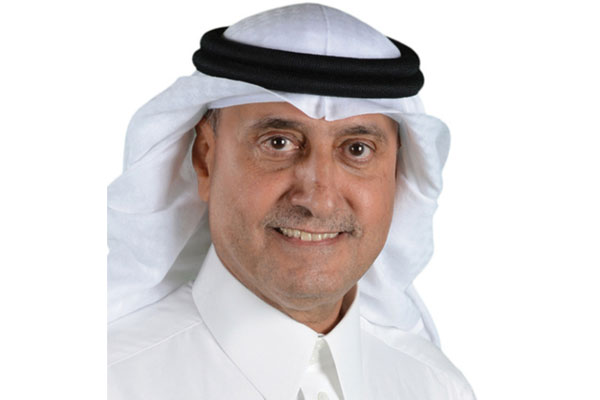
Al-Morished ... we should be careful not to kill the golden
goose
Gas subsidy cuts 'will damage Saudi chemicals industry'
RIYADH, November 4, 2015
The chief executive of National Industrialization Company (Tasnee), which has interests in petrochemicals, metals and chemicals, said any big rise in Saudi natural gas prices risked "killing the golden goose".
Tasnee CEO Mutlaq al-Morished also told the Reuters Middle East Investment Summit it would be at least 12 months before the company began seeing the benefits of a significant restructuring effort designed to arrest slumping profits.
The drop in oil prices since June 2014 is starting to have a serious impact on state spending in the Gulf Arab kingdom and the government is taking measures to stem a budget deficit the International Monetary Fund estimates will be well over $100 billion in 2015.
The country's petrochemicals sector is also feeling the pinch as lower product prices reduce revenue for the industry, despite subsidised feedstock helping to keep costs down compared with international competition.
However, Saudi oil minister Ali Al-Naimi said last week the government was looking at whether to cut domestic energy subsidies. The subsidy for natural gas cost the kingdom $11.73 billion in 2014, according to IMF figures.
"We should be careful not to kill the golden goose as it took us 30 years to build the golden goose and we can kill it easily," Morished said in an interview.
"Today, an increase beyond a logical 10-15 per cent is going to be detrimental to the chemical industry."
Saudi has set its ethane feedstock prices at 75 cents per million BTU since 1999. This compares with the Henry Hub price on Tuesday of $1.90.
Morished said while the gas price was higher in the United States, once factors such as the cost of shipping products to other markets and importing equipment were included, the prices would be about the same level because of the impact of the shale gas industry.
COST CUTS
Like most Saudi firms linked to the oil and gas sector, Tasnee has struggled this year. On October 19, it posted its third straight quarterly loss on lower sales and prices.
To combat poor market conditions, Tasnee announced in April that it would undertake a major restructuring of its business aimed at cutting costs and revising contracts.
“Basically, we are cutting our costs across the board: consolidating businesses, improving performance in our plants, running our reliability better and reducing inventories," said Morished, the former chief financial officer of Saudi Basic Industries Corp (Sabic) who was appointed Tasnee CEO in January.
Morished declined to elaborate beyond saying costs cuts were substantial and included significant layoffs which had reduced the workforce to about 9,000.
Asked when the restructuring would yield benefits, Morished said it was "slowly" starting to see them but it would be late-2016 or early-2017 before most results would come through.
Much could depend on the market for titanium dioxide. Tasnee is one of the world's largest producers through its Cristal subsidiary.
Morished said the company had struggled this year due to dumping by China and general slowness in the global economy, and its performance next year would be dependent on these factors.
It would benefit, though, from a project in the southern city of Jizan, due to start commercial operations in the third quarter of 2016, as this would cover almost two thirds of its feedstock needs which it currently imports.
"It is not going to suddenly help make big profit because it all depends on the market and how the Chinese are behaving, but it will definitely improve our cost structure."
Tasnee was also getting some benefits from new projects in trial periods or coming on stream, including a plastic project in Hail which will start up commercially next year and a small membrane project in Dammam.
It started up a joint butanol project in Jubail in October which will improve the economics of its acrylic complex.
"We are not putting 100 per cent brake on but we are trying to deal with a difficult situation," Morished said.
"Right now, our situation is to cut our costs to improve our profitability because nobody can sustain losses forever. I have to fix my ship before I start sailing." - Reuters







